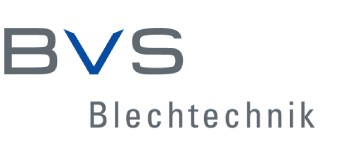Business Meeting Automation
Automation, digitalization and Industry 4.0 are buzzwords that are currently on everyone’s lips. At the Hamburg Business Meeting “The future of automation – defying the shortage of skilled workers and being successful worldwide!”, specialists from business and science discussed what automation means. As a guest on the podium, Harald Steiner, Managing Director of the BVS Group, shared his views on the future challenges of the digital development of applications and processes.
At the beginning of November, the Minister of Economic Affairs of the state of Mecklenburg-Vorpommern, Harry Glawe, together with the state’s economic development agency, Invest in Mecklenburg-Vorpommern, hosted the Business Meeting in Hamburg for the fifth time in a row. This year’s topic was about the potential risk of economic developments associated with an impending shortage of skilled workers. In this context, five experts discussed the advancing digitalization and the associated changes for people and technology that need to be solved across the board.
Prof. Dr. Enzo Weber, from the Institute for Employment Research, gave a keynote speech on the historical development of industrialization, the widespread use of computers and assembly lines and Industry 4.0. He asked whether digitally controlled robots would take away our jobs today. He emphasized, “On the way to the new world of work, people have to adapt, acquire new qualifications… If not, we know from the development in the 1970s that unemployment can build up structurally”. Steffen Himstedt, Managing Director of Trebing & Himstedt Prozessautomation, said, “The question now is: how can we move quickly enough into qualification so that everyone is taken along into digitalization?”.

Harald Steiner then explained. “It’s important to take steps towards automation slowly, otherwise many people will be overwhelmed. I’m worried that we won’t have enough qualified employees to master the challenges.” One solution mentioned in the discussion was flexible working time models. This would allow, for example, a machine specialist to check machines from home and intervene in production at short notice if faults such as machine downtime occur. Overall, more experts with in-depth specialist knowledge will be needed in the future.
It is reassuring to note that work is not running out in Economy 4.0. “It is important to be open and not be afraid of digitalization,” appealed Steffen Himstedt.
Pictures: Invest in Mecklenburg-Vorpommern



